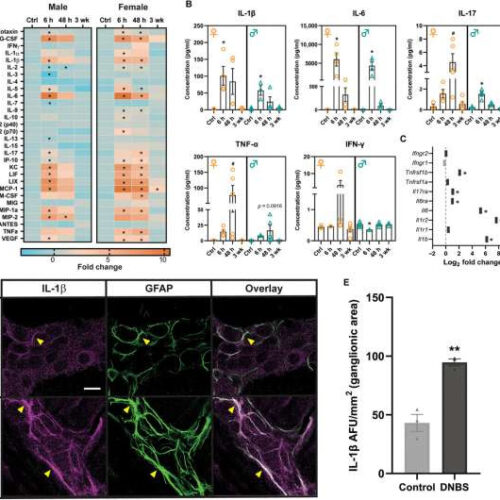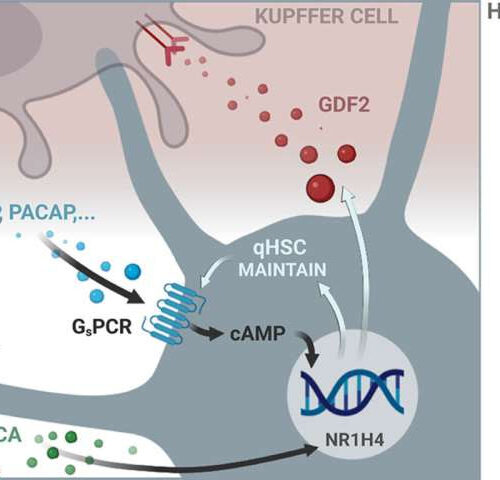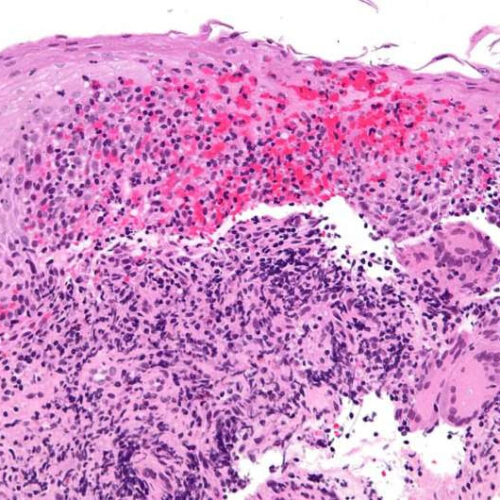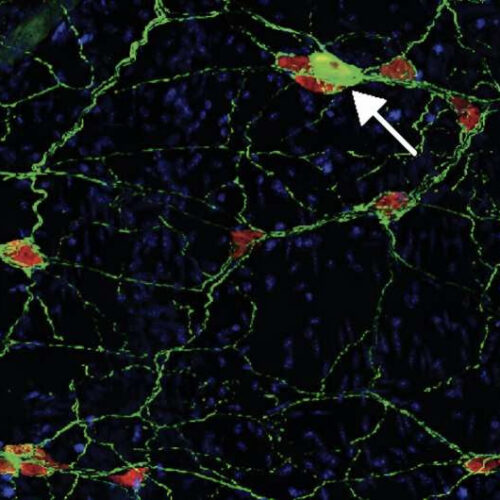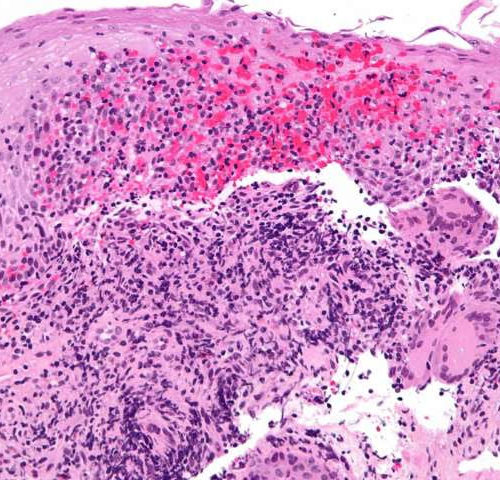by Michigan State University IL-1β expression is increased in enteric glia after inflammation. Credit: Science Signaling (2023). DOI: 10.1126/scisignal.adg1668Researchers at Michigan State University may have discovered why visceral pain is so common in people who have experienced inflammation in their guts, including patients with irritable bowel syndrome, or IBS. Working with mouse models, MSU physiologists...
Tag: <span>Gastroenterology</span>
Hormones have the potential to treat liver fibrosis, new study finds
by Birgitte Svennevig, University of Southern Denmark Graphical Abstract. Credit: Journal of Hepatology (2023). DOI: 10.1016/j.jhep.2023.11.001Hormone therapy may be associated with menopause and fertility treatment, but now an SDU-led research team reports that certain intestinal hormones seem to have a beneficial effect on the processes behind the formation of scar tissue in the liver (liver...
First comprehensive guideline on using biomarkers for monitoring Crohn’s disease
by American Gastroenterological Association Credit: Nephron/WikipediaThe American Gastroenterological Association (AGA) has released a new evidence-based guideline recommending the use of blood and stool-based biomarkers to help manage Crohn’s disease, a type of inflammatory bowel disease (IBD). IBD is estimated to affect 2.74 million people in the U.S. The guideline was published today in Gastroenterology. Biomarkers...
Study adds to evidence that Parkinson’s starts in the gut
by Columbia University Irving Medical Center An autoimmune reaction in mice to a protein associated with Parkinson’s disease damaged neurons in the GI tract, adding to evidence that the disease may get its start in the gut. Credit: David Sulzer Ask any neurologist: Parkinson’s disease is a brain disorder. The conspicuous symptoms of Parkinson’s disease—uncontrollable tremors,...
Fecal transplants may reduce alcohol use, early research suggests
by Jackie Kruszewski, Virginia Commonwealth University A Virginia Commonwealth University researcher has published preliminary but striking evidence that shows the transplantation of gut bacteria may have implications for addiction disorders. Jasmohan Bajaj, M.D., a gastroenterologist and liver specialist, transplanted bacteria from another person’s stool into 10 volunteers with severe alcohol use disorder and cirrhosis. Nine...
Researchers uncover drivers of healthy gut maintenance
by The Francis Crick Institute Researchers at the Francis Crick Institute have found two genes that regulate the differentiation of stem cells in the small intestine, offering valuable insight into how the body develops and maintains a healthy gut. Cells in the lining of the small intestine are replaced around every five days, the quickest...
Serious complication of Crohn’s disease may be preventable in young people
by University of Michigan For children and young adults with Crohn’s disease, steroid-sparing therapies may help reduce the risk of developing a severe and common complication of the inflammatory bowel condition, a new study suggests. About one in three people with Crohn’s disease develop what’s known as a perianal fistula, which can be painful, difficult...
Gastrointestinal symptoms common in COVID-19 patients, study reports
by Tracie White, Stanford University Medical Center Researchers found that, in addition to upper respiratory symptoms, a significant number of those sick with the new virus also suffered from loss of appetite, nausea, vomiting and diarrhea. The study, one of the earliest on U.S. patients with the coronavirus, was published online April 10 in Gastroenterology....
Non-invasive, Innovative Therapy May Be Alternative to Bariatric Surgery
Posted Today Endoscopic and metabolic therapies, or EBMTs, are innovative, non-invasive weight-loss procedures designed to significantly reduce a patient’s stomach volume or alter other parts of the digestive tract to treat obesity and other metabolic diseases. Unlike traditional bariatric surgery, an endoscopic bariatric procedure is performed using a small, flexible scope inserted through the patient’s mouth. With many patients failing to meet surgical...
T2DM is risk factor for liver fibrosis progression in NAFLD
Toshifumi Tada, M.D., from Ogaki Municipal Hospital in Japan, and colleagues examined clinical risk factors for progression of liver fibrosis in patients with NAFLD. Data were included for 1,562 patients with NAFLD (aged 36 to 64 years) and less severe liver fibrosis (FIB-4 index, <1.3). The researchers found that 186 patients progressed to advanced fibrosis (FIB-4 index, >2.67) during follow-up. For progression to advanced fibrosis, the three-, five-, seven-, and 10-year cumulative incidence rates...

